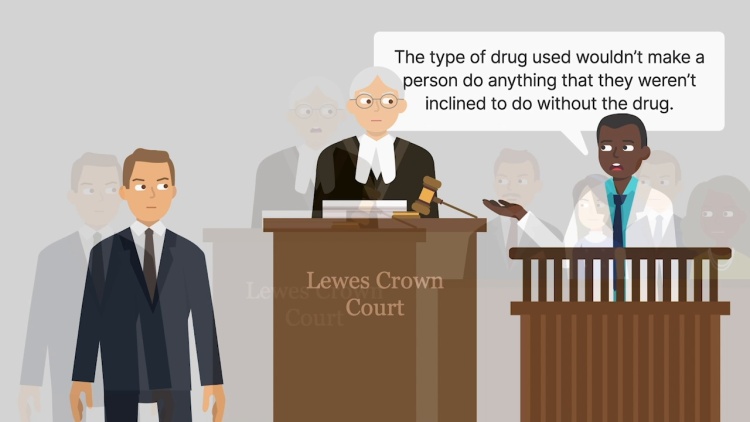Regina v. Kingston
House of Lords
[1994] 3 All E.R. 353
- Written by Craig Conway, LLM
Facts
In an attempt to blackmail Kingston (defendant), Penn placed a drug in Kingston’s drink and then photographed and audiotaped Kingston sexually assaulting a 15-year-old boy at Penn’s home. Kingston was charged with indecent assault. At trial, the judge instructed the jury that it should acquit Kingston only if it found that Kingston did not have an intent to commit indecent assault on the boy. The trial judge noted, “a drugged intent is still an intent.” The jury convicted Kingston and he appealed, arguing that “an accused person may be entitled to be acquitted if there is a possibility that although his act was intentional, the intent itself arose out of circumstances for which he bears no blame.” Writing for the court of appeal, Lord Taylor noted that if a drink or a drug is secretly administered to an unsuspecting person who then commits an illegal act because he lacked self-control, and thus lacked the required mens rea to commit the offense, the person ought to be acquitted of the offense. Lord Taylor then reversed Kingston’s conviction, and the case was appealed to the House of Lords.
Rule of Law
Issue
Holding and Reasoning (Mustill, J.)
What to do next…
Here's why 907,000 law students have relied on our case briefs:
- Written by law professors and practitioners, not other law students. 47,100 briefs, keyed to 996 casebooks. Top-notch customer support.
- The right amount of information, includes the facts, issues, rule of law, holding and reasoning, and any concurrences and dissents.
- Access in your classes, works on your mobile and tablet. Massive library of related video lessons and high quality multiple-choice questions.
- Easy to use, uniform format for every case brief. Written in plain English, not in legalese. Our briefs summarize and simplify; they don’t just repeat the court’s language.







